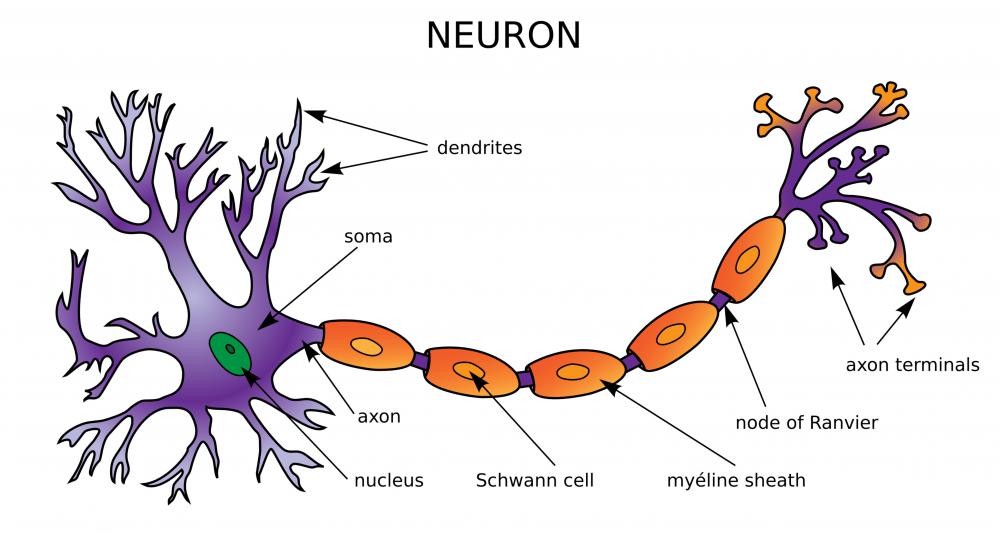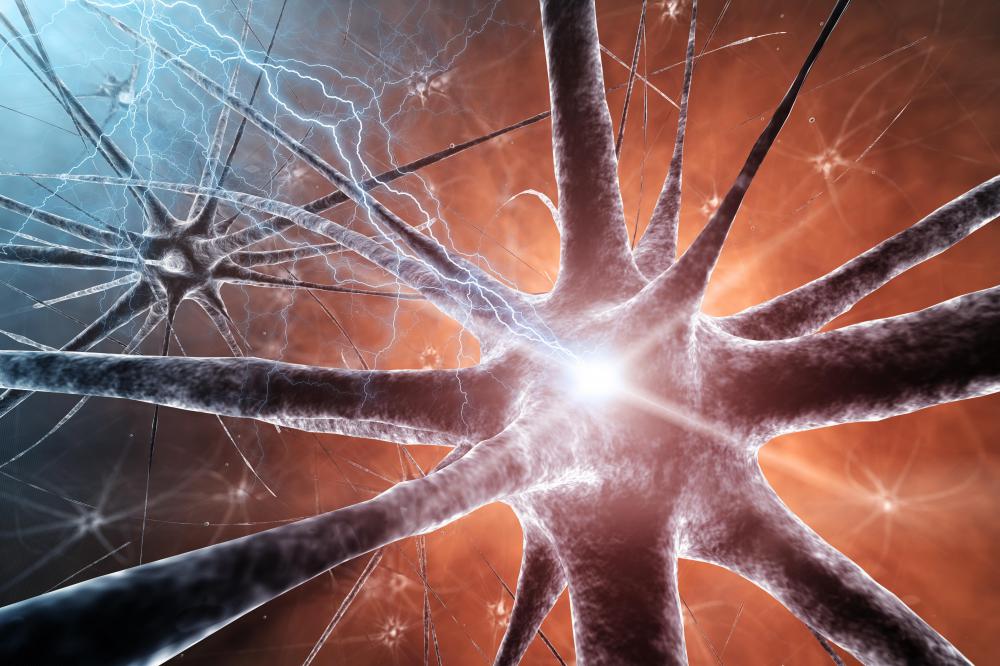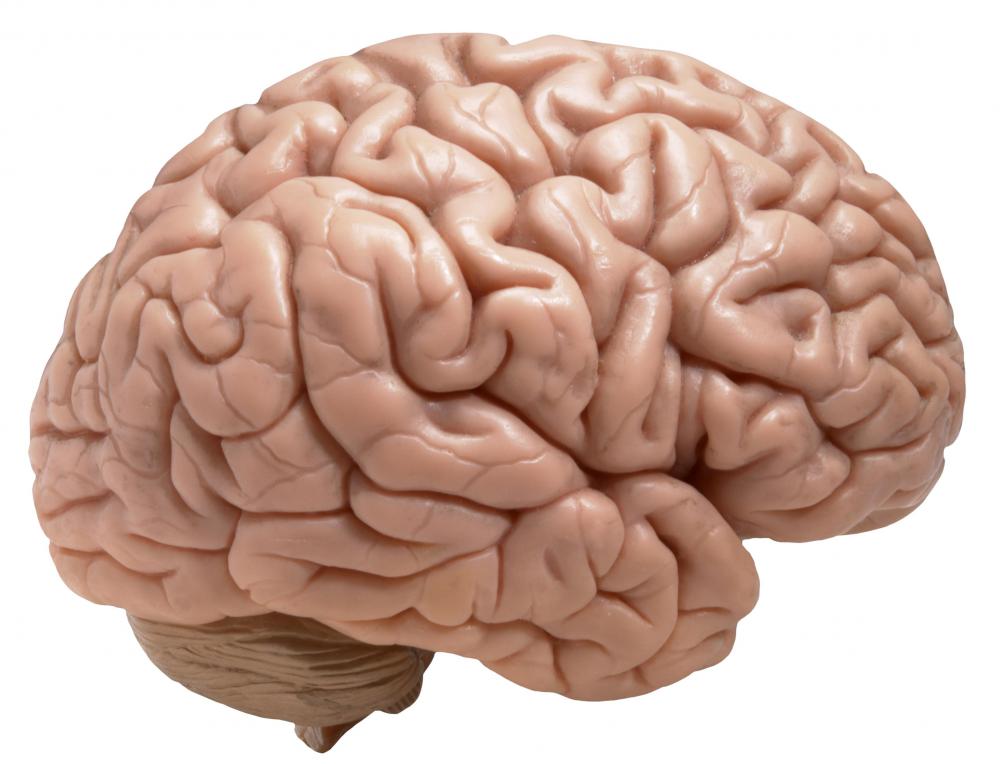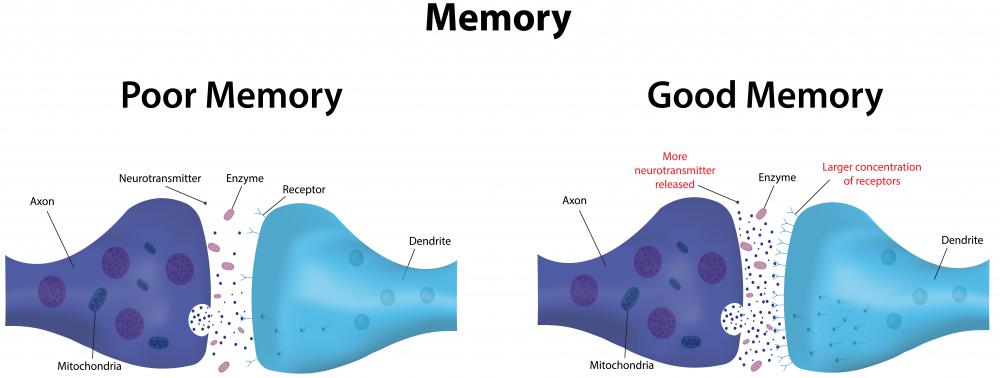At WiseGEEK, we're committed to delivering accurate, trustworthy information. Our expert-authored content is rigorously fact-checked and sourced from credible authorities. Discover how we uphold the highest standards in providing you with reliable knowledge.
What Are the Major Neurotransmitters?
In the brain, there are many different chemicals that aid in function. Neurotransmitters are types of endogenous chemicals that are produced by cells. Although there are many types of neurotransmitters that correspond to types of cells, there are three groups of major neurotransmitters that have the most influence. These groups of important neurotransmitters are peptide, biogenic amine, and amino acid neurotransmitters.
Neurotransmitters are special chemicals that sit between cells. They bring messages from neurons back and forth, allowing cells to communicate with each other. These special chemicals are grouped based on where they are produced and what they do. Different types of cells produce different types of neurotransmitters, but a few have been identified as major neurotransmitters through research.

Peptide neurotransmitters are one group of major neurotransmitters. This group includes the peptide known as cholecystokinin. Studies have shown this neurotransmitter increases the production of a neurotransmitter called gamma amino butyric acid (GABA) and decreases another neurotransmitter called dopamine. In general, peptide neurotransmitters help regulate appetite, mood, and pain perceptions.

Other major neurotransmitters belong to a group called biogenic amine neurotransmitters. Serotonin, dopamine, and acetylcholine are a few of the primary neurotransmitters in this group. Biogenic neurotransmitters assist in regulating sleep, mood, and body movement. Research has proved that acetylcholine also influences memory and learning abilities.

Amino acid neurotransmitters are the third group of major neurotransmitters. GABA and glutamate are the primary neurotransmitters in this group and work to balance each other. GABA is a type of inhibitor that blocks the communication of one cell to any others. It balances excitement within the brain. Glutamate is a neurotransmitter that induces excitement in the brain when triggered.

Although it seems as though neurotransmitters function smoothly in the brain, a balance is important. A problem with any one of the major neurotransmitters can throw off the balance and lead to issues. For example, a deficiency in acetylcholine is believed to be one of the causes of Alzheimer’s disease. Additionally, a deficiency in an inhibitory neurotransmitter can cause an abnormal increase in excitatory neurotransmitters, leading to cell overexertion and cell death.

All neurotransmitters work together every minute throughout life to keep a balance in the brain. Neurotransmitters tell the brain how to act and tell cells what to regulate and when. They also tell the body which chemicals are needed at any point in time. All of the systems of the body rely on neurotransmitters to function properly.
AS FEATURED ON:
AS FEATURED ON:















Discuss this Article
Post your comments